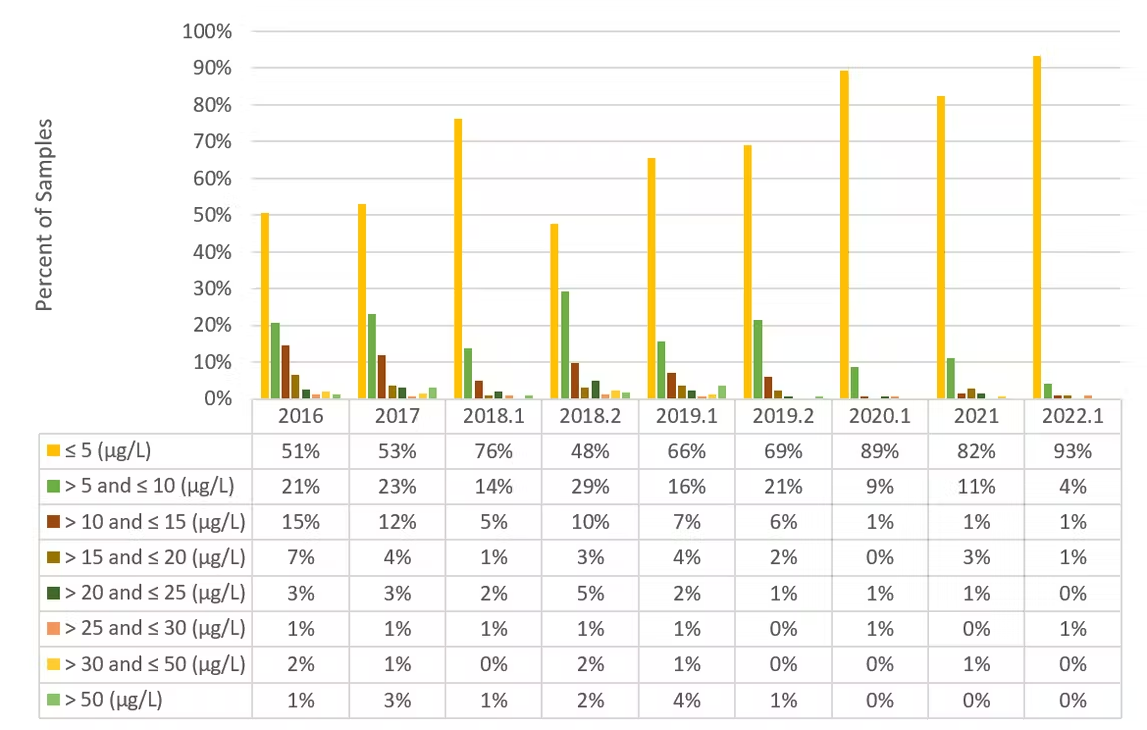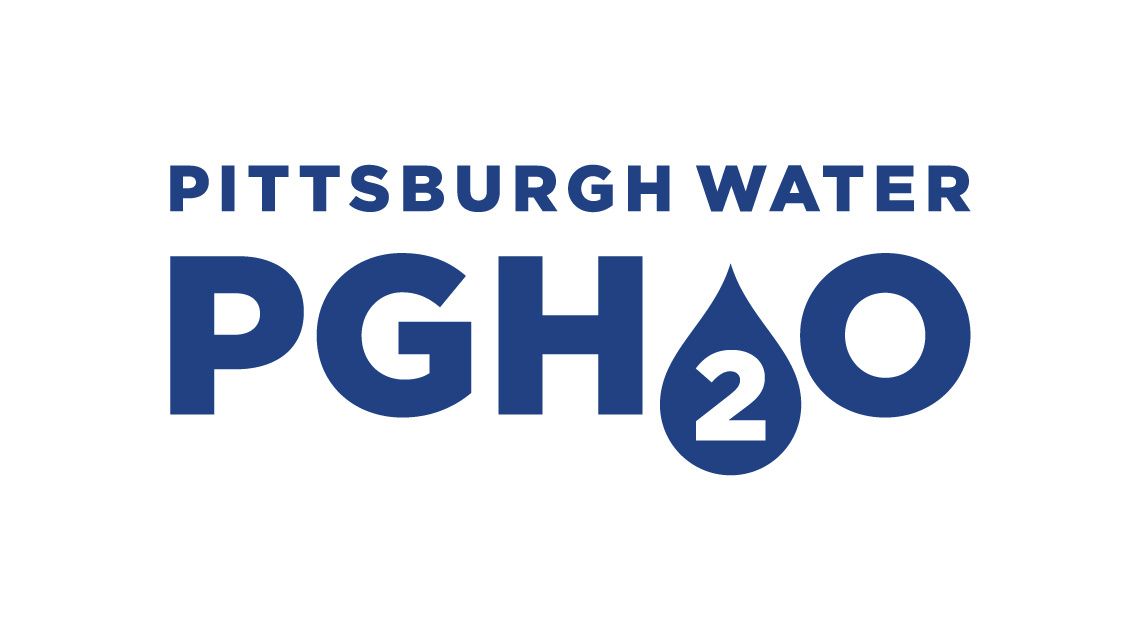Get Issuer Alerts
Add this issuer to your watchlist to get alerts about important updates.
Pittsburgh maintains low lead levels in water
View allJuly 27, 2022
Recent testing finds that the city’s drinking water lead levels have improved by 11 percent since the last regulatory testing period, thanks in part to the use of orthophosphate.
The most recent round of testing completed by the Pittsburgh Water and Sewer Authority (PWSA) finds the city’s drinking water lead levels below the state and federal action level of 15 parts per billion (ppb).
PWSA says that the results indicate the continued effectiveness of adding orthophosphate to its water treatment process. This is PWSA’s fourth consecutive round of testing in which lead levels are in compliance. All water samples were taken at homes with a known lead service line or a historical record of a lead line.
The 90th percentile result of 4.42 ppb is below the U.S. Environmental Protection Agency (EPA) and Pennsylvania Department of Environmental Protection (DEP) lead action level of 15 ppb. Samples were taken at 117 residential locations between January and June of 2022. To date, this is the lowest round of samples in over 20 years.
These results come weeks after an official visit from Vice President Kamala Harris, EPA Secretary Michael S. Regan, and Housing and Urban Development Secretary Marcia L. Fudge that highlighted the importance of lead remediation and PWSA’s efforts to tackle lead-in-water issues in Pittsburgh.
“This latest round of testing undoubtedly reflects the commitment from our diverse team of employees, contractors, consultants and Community Lead Response Advisory Committee to ensure we’re continuing to protect our customers from exposure to lead in water,” said PWSA CEO Will Pickering. “We remain focused on protecting public health, and our work to replace the remaining lead lines is not over,” he continued.
PWSA’s water came back into compliance in summer of 2020 and lead levels have remained well below the EPA action level of 15 ppb. Since the Community Lead Response’s inception in 2016, PWSA has replaced over 9,200 public lead service lines and over 6,100 private lead service lines at no direct cost to customers.

“The City of Pittsburgh is extremely proud of the progress PWSA has made to reduce lead levels and supports their commitment to remove all lead service lines from their drinking water system,” said Pittsburgh Mayor Ed Gainey. “Funding from the American Rescue Plan Act ensures this vital work will continue to revitalize homes and neighborhoods – ensuring Pittsburgh residents have access to safe, clean drinking water.”
The most recent testing shows that 93 percent of water samples taken show lead levels 5 ppb or lower. This is an 11 percent improvement from last regulatory testing period.
Orthophosphate as Corrosion Control
In April 2019, PWSA began adding orthophosphate to reduce lead levels in drinking water while continuing to replace thousands of lead service lines. Orthophosphate is a food-grade additive that forms a protective layer inside of lead service lines, creating an anti-corrosive barrier between the lead pipes and the water flowing through them. It is approved by the EPA and successfully used in water systems across the world. Orthophosphate was selected by PWSA and approved by DEP after an extensive, year-long study of treatment alternatives.
Since PWSA came back into full compliance with the Lead and Copper Rule in July of 2020, it has been working closely with national water quality experts to further optimize the water treatment process to maintain low lead levels. Over 60 samples are taken from around the system every week, including lead monitoring stations, hydrants, and controlled testing points. Analysts look at lead levels, as well as orthophosphate and pH levels and other markers that influence overall water quality.
PWSA plant and field operators, water quality experts, engineers, and data managers also constantly review information collected in the field to ensure that PWSA’s drinking water meets all state and federal regulations.
2022 Lead Programs
PWSA is pursuing several targeted programs in 2022. All planned water main and service line replacement work for the year is being financed with assistance from state and federal programs, like the Pennsylvania Infrastructure Investment Authority (PENNVEST) and the 2021 American Rescue Plan. PWSA says that these programs will save its ratepayers an estimated $77 million in 2022. The following programs kicked off this calendar year:
2022 Neighborhood Lead Service Line Replacement
The City of Pittsburgh approved and provided $17 million to PWSA from the American Rescue Plan to target lead service line replacement. Construction crews will move through neighborhoods quickly and efficiently, replacing any lead service lines they discover. Funding is anticipated to replace approximately 725 lead service lines. Work began in spring of this year.
Small Diameter Water Main Replacement
Water main replacements continue throughout PWSA’s service area, replacing aging infrastructure and lead lines. This project will improve water reliability and safety by replacing approximately eight miles of new water main and 900 service lines. Additional water main replacement will be announced later in summer 2022.
Reimbursement Program
PWSA will assist customers with the cost of private lead service line replacement if customers choose to proactively hire a plumber and complete the work. In partnership with Dollar Energy Fund, PWSA will verify income and determine the level of reimbursement provided to customers.

